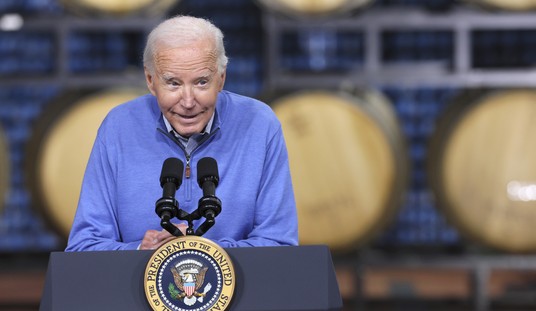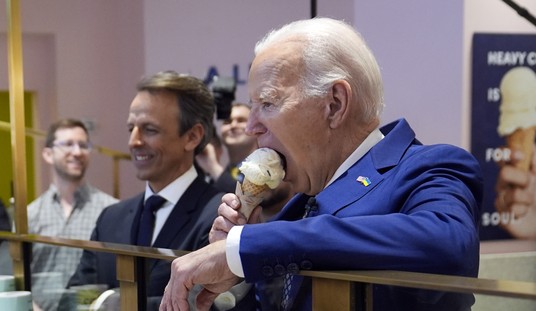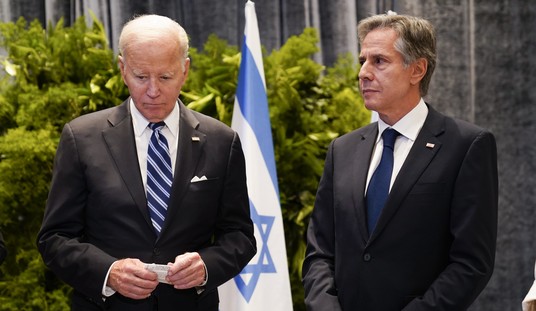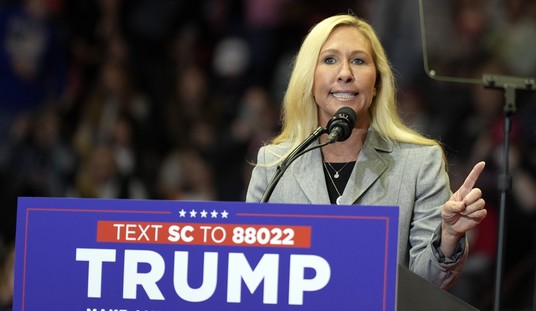
The hit shark film could reveal the coming standard for Hollywood, due to tariffs.
This weekend the bloated shark action epic “The Meg” became a surprise hit in theaters. Starring Jason Statham as a rescue sub diver who encounters a prehistoric mammoth shark released from a deep sea trench, it nearly doubled the projected box office. Also, it turns out there is a tangible economic connection between this (very) deep sea thriller and the president’s new tariff policy towards the Main Land.
In the film a billionaire, played by Rainn Wilson from “The Office”, is bankrolling a massively expensive underwater research facility in the Pacific Ocean exploring the Marianas Trench. The scientists correctly theorize there is a “false bottom” to the ocean floor made of hydrogen sulfide that houses a completely thriving environment below. Many parts of the facility sport iconography from the Orient, and a significant amount of the cast is comprised of Chinese performers.
Here is where the bridge to Trump is found. In his effort to equalize what he perceives as trade imbalances the president is looking to impose tariffs, with billions in these trade fees applied to the market involving the ChiComs. In response the Chinese have pledged to imposing their own taxes upon American goods, escalating a trade war.
Hollywood is concerned about this prospect because China has an exploding theatrical market, and the studios are very eager to get some of that revenue. It is expected soon, in the coming years, China’s box office will exceed that of North America. However it is not an easy task for US studios. The cinema industry is controlled entirely by the ChiCom government, and they impose stiff restrictions on American dramatic releases.
The Chinese pay out a smaller cut of the box office compared to most nations; where 40-45% is the norm in foreign territories, China allows for numbers closer to 25%. Additionally, only a few dozen titles from the States are permitted to be shown per year and the studios jockey for limited slots. The government has to approve the releases, as they screen the content of the movies to meet their approval. This often leads to the very contradictory practice of Hollywood willingly altering the artistic content of their product.
These days studios will truncate content the ChiComs deem unacceptable, and/or will insert new scenes that may appeal to the Chinese audience. The appearance of censorship once was held as a taboo practice in Hollywood, but today that principle is pushed aside for the pursuit of the renminbi. Appeasement is part of the profit formula.
Anger the ChiComs and you become cut off from their market. Studios will capitulate because many are part of multinational corporations. Produce a film that insults the central government and those other arms of the conglomerate may also meet economic reprisals. A studio like Sony will do nothing to antagonize the leadership, for fear that not only will its movies not get the play they desire, but it might also meet market punishment with its electronics division.
And thus Trump’s tariff play becomes of interest. If the Chinese leaders choose they may have restrictions placed on studio releases as an act of reprisal. Of course, there could be a bit of protection as well, in that many in Hollywood have vocally opposed the president. As much of an unknown as this could be for the studios there is an established gambit that should help, which brings us to “The Meg”.
There are number of factors behind the goofy shark film having a Beijing-rich feel to it on screen. Appealing to the mushrooming Chinese movie marketplace is just the start, but there is more than simple marketing demographics in that decision. The arrangement on the mainland is that if a Hollywood film is partnered with Chinese production companies then the US studio will see a larger participation in the revenue — up to near 40% of the box office.
This movie fills that criteria. Based on the book series by author Steve Alten the adaptation has long languished in Hollywood. (Disney initially bought the book rights in the 1990s. New Line also licensed the book but killed the deal after years of development.) So Warner Brothers teamed up with Hong Kong production outfit Flagship Entertainment, and distribution is through China’s Gravity Pictures. Thus “The Meg” is regarded as a Chinese production.
This is the kind of pan-Pacific partnership that could insulate studios from possible revenge reprisals concerning Trump’s tariffs aggression. It may take a few years to see this play out on screens, but more films could resemble this mixed cast. Also some leverage could be employed. If the ChiComs target Hollywood as a response to the trade aggression, they could effectively drive more large-budget movie productions to their shores as studios use these partnerships as a haven.
If we see more films like “The Meg”, containing subtitles due to scenes with Chinese dialogue, we can look towards the White House for that effect.














Join the conversation as a VIP Member